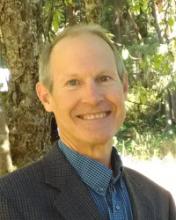When I tell someone that I teach Political Science at the University of Washington, the response is usually along the lines of “You must have a lot to talk about!” or “These must be very interesting times for a Political Scientist!” Both are observations are true of course. There is always something to talk about and I have learned a lot from the ‘politics of unusual’ that we are currently experiencing. As an American politics scholar, much of what I have observed has only reinforced the importance of what we currently teach our students. Other things have challenged my worldview. Count me among those surprised by the racial backlash that seems to be driving much of today’s national politics.
Recent events are also a reminder of why we are educating the next generation of political scientists. Things change. Five years ago, I finished a book, Congress and the Politics of Problem Solving (with E. Scott Adler), that drew on decades of data to document how Congress encourages its members to invest in lawmaking and how most important policies pass with bipartisan support. Alas, recent research documents a steady decline in institutional capacity and consensual policymaking. This decline is attributed in large part to increasing partisan competition.
These are troubling developments for a democracy. One would hope that more electoral competition would lead to better representation. Instead, we seem to be witnessing an increasing disconnect between how people vote and what government accomplishes. Lawmakers seem to be getting the message that the position-taking is more important than problem solving. An essential political skill, compromise, seems to have become a dirty word.
In two books, Professor Suzanne Mettler (Cornell University) has examined what she calls the “submerged state.” Throughout their lives, nearly all Americans benefit from a wide range of government programs. Why then do many Americans view government so negatively, including many of those who depend on it the most? She will be speaking about what she has discovered on February 22nd. There will also be an alumni reception prior to this event.
After the end of the cold war, democratic progress seemed inexorable. New democracies were being established throughout the former Soviet Union and citizens in the Middle East were pressuring their governments to reform. This progress is now under increasing threat in the U.S. and elsewhere. Steven Levitsky and Daniel Ziblatt offered suggestions for preventing the erosion of democratic norms in How Democracies Die. In a review article, our own Chris Parker questions whether their solutions will work in the U.S. because they do not adequately consider the role of race in American politics. Victor Menaldo’s new book, Authoritarianism and the Elite Origins of Democracy (with Michael Albertus) also challenges the inexorable progress narrative. Examining democratic transitions across many nations, they find that elites of the former authoritarian regime are often able to shape new democratic institutions to protect their interests.
Our Winter Faculty Panel, scheduled for February 6th, will further explore challenges to democratic rule in a roundtable titled “Corruption in Comparative Perspective.”
These are interesting times indeed. We hope to see you at one of these events!
John Wilkerson
